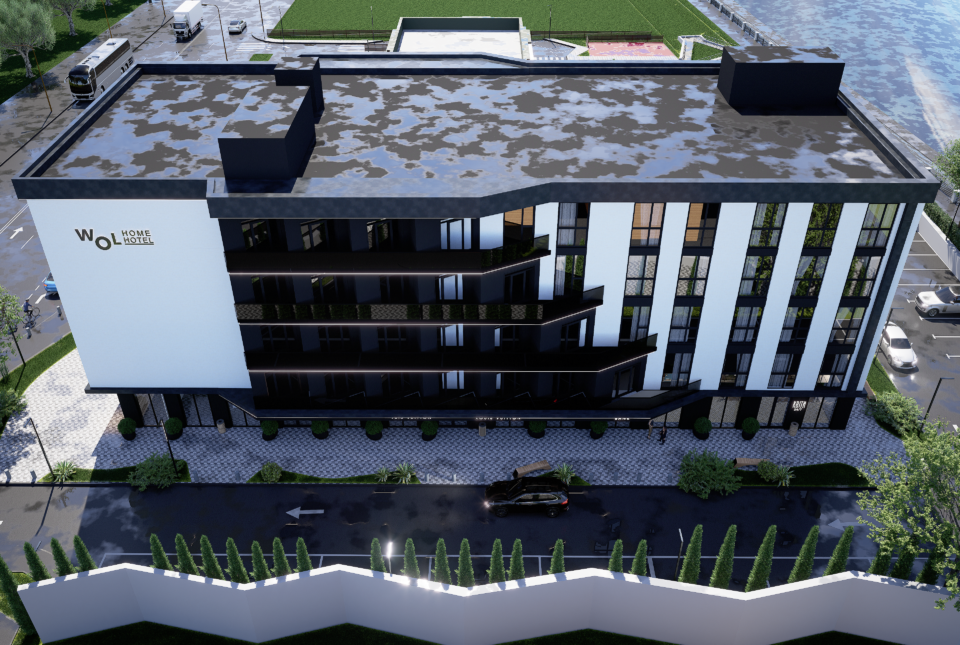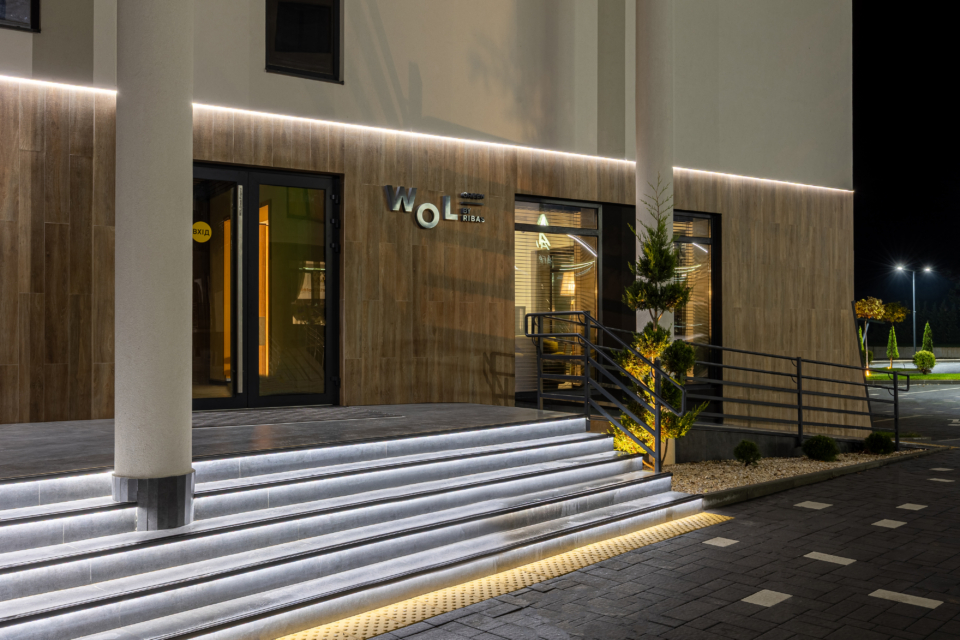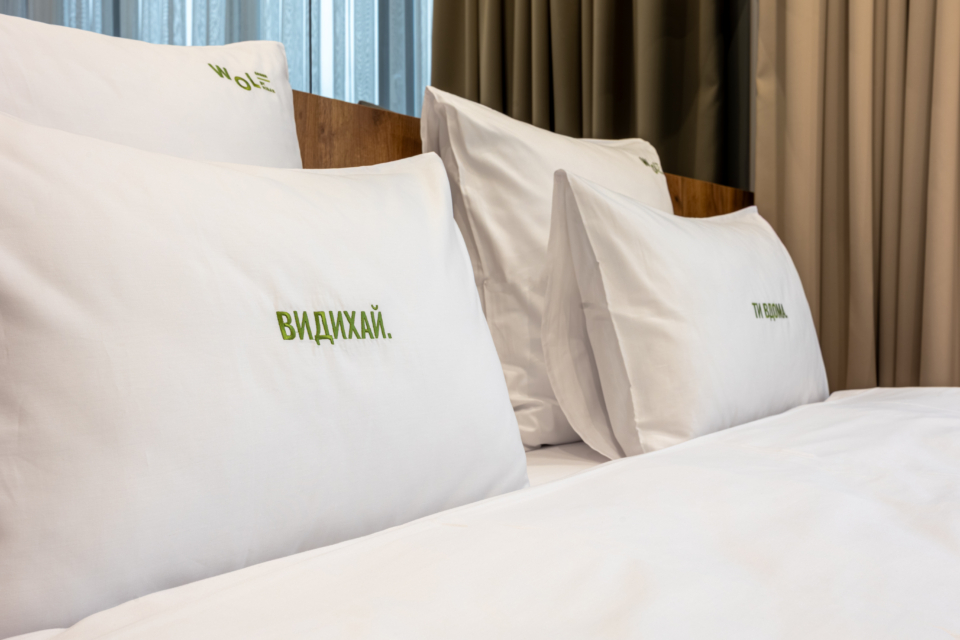General rules of safety in the hotel during the war
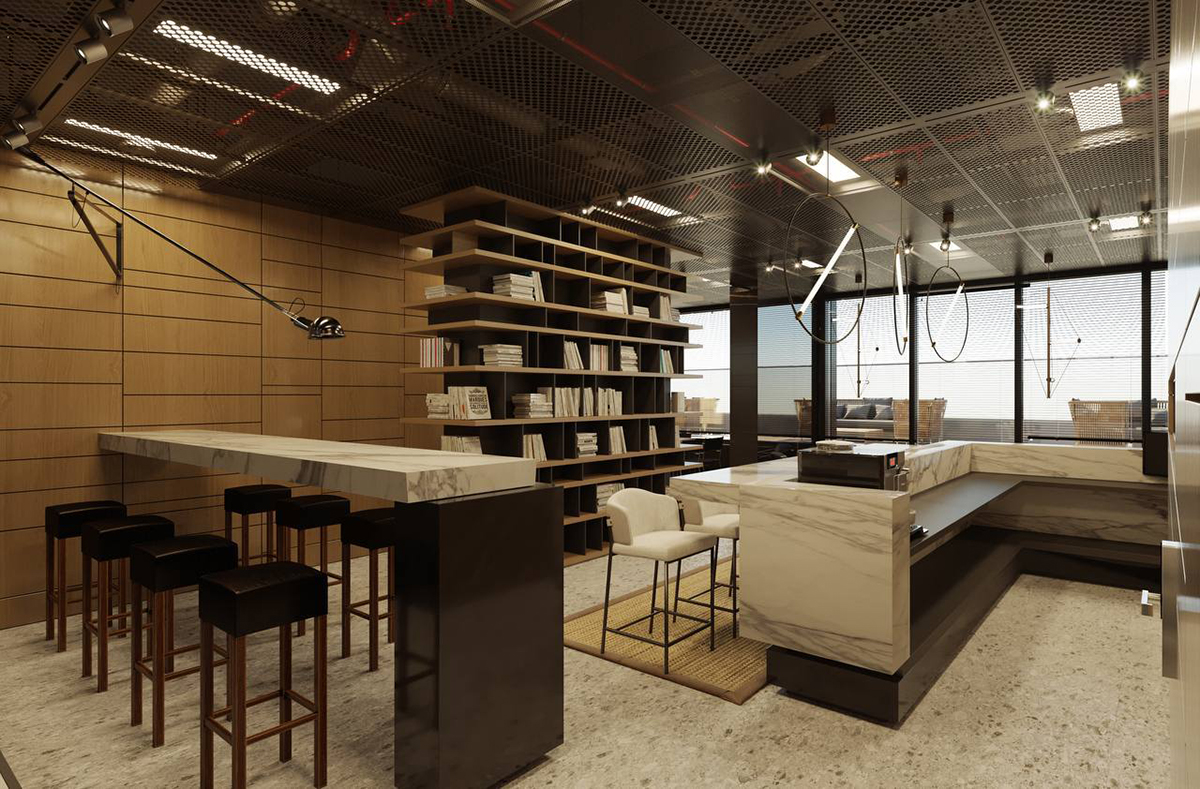
During the full-scale war, Ukrainian hotels somewhat reorganized their work, focusing on ensuring not only comfort, but also guest safety. They follow certain rules that guarantee people’s protection, and also, despite a number of restrictions, try to maintain an adequate level of service, adapting to new working conditions. A bomb shelter with everything necessary for a comfortable stay of guests during an air raid helps hotels organize security. And in the event of a blackout, to maintain the usual level of service, the hotels have alternative sources of electricity and water reserves. How we solved these issues in our hotels is described in the article.
What is important for the guest
When choosing a hotel, people now pay attention to how safe this or that property is, and everyone has their own selection criteria. “During the full-scale invasion, our guests were repeatedly interested in similar nuances – from “how often do you have air raid alarms?” to questions about the curfew and food and energy independence of the hotel,” said Marta Vorokh, manager of the Helios by Ribas hotel ( the village of Polyanytsia, Ivano-Frankivsk region). According to her, people are currently looking for their point of safety: for some it is distance from the line of hostilities, for others it is the opportunity to be in silence and not hear the sounds of explosions, and some are looking for energy security and want to be sure there will be electricity, heating and the Internet in chosen ones.
However, according to Daria Chevdar, manager of the Ribas rooms Lutsk hotel, Ukrainians often asked questions about the presence of a bomb shelter at the beginning of a full-scale war. Nowadays, mostly foreigners are interested in this – the press, delegations of international missions, etc. For Ukrainians, price and location are more important. According to her, there should still be a bomb shelter, but it is not a decisive factor when choosing an accommodation for citizens of Ukraine.
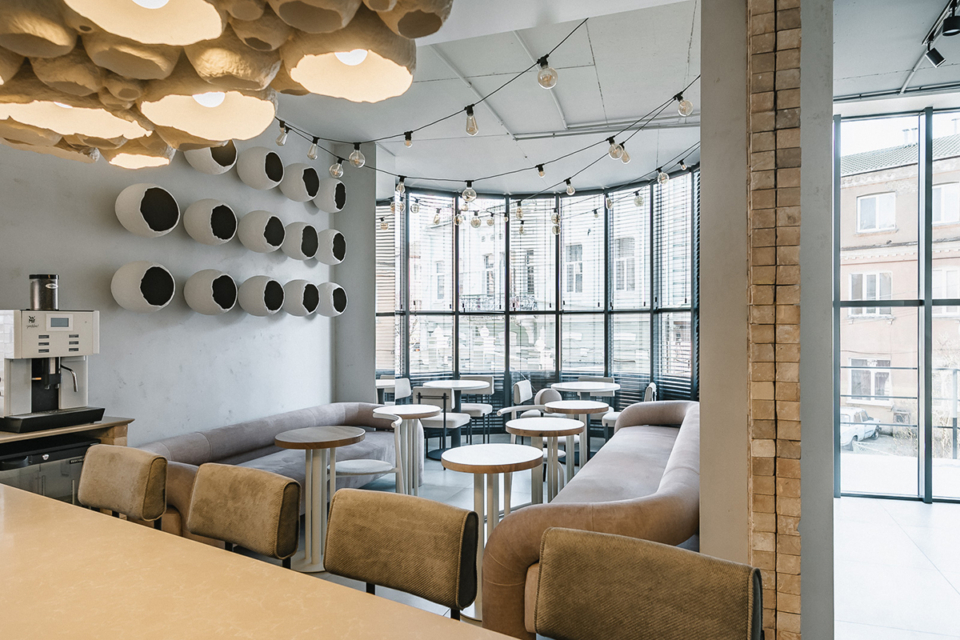
In the photo: Hotel Ribas rooms Lutsk (Lutsk)
Safety rules in the hotel
In order to ensure maximum safety in the hotel during the war, it is necessary to sacrifice service or people’s comfort. “For example, in the Ivano-Frankivsk region, restrictions on the sale of alcohol after 9:00 p.m. and a curfew after 11:00 p.m. have been introduced at the local level. The use of pyrotechnic products is also prohibited. It would seem, why so many restrictions? It is 1,000 kilometers to the front line, and such requirements strongly affect the possibility of a comfortable rest for the guest, as well as the earnings of entertainment establishments. However, it is important to follow these rules. Yes, during the 8 months of the war, all citizens are in a state of permanent stress, and alcohol in excessive quantities can cause a person to have an attack of aggression directed at other guests or hotel staff,” said Marta Vorokh.
But during the curfew in Ukraine, sabotage and reconnaissance groups of the enemy can operate, and it is much easier for law enforcement officers to detect them at a time when there are restrictions on the movement of citizens. There is no need to talk about the use of pyrotechnic products, since the sounds from launching fireworks will bring discomfort to everyone.

In the photo: Ribas Duke Boutique Hotel (Odesa)
Undoubtedly, the restrictions have a significant impact on the rest of guests, but it, together with other security measures in hotels, create a complex of factors that gives a sense of security to people staying in the hotel.
During an air raid, all guests and employees of the hotels are required to descend into the bomb shelter. People who do not want to leave the hotel bear full responsibility for their lives and other possible consequences due to failure to follow the recommendations during martial law (in this case, one staff member remains in the hotel). All employees must be instructed on actions in emergency situations.
«We ask guests whether to call/wake them in the time of an airstrike. We show them how to get to the bomb shelter, we even placed information with a map in the hotel»
Tatyana Zagnitna, manager of the Ribas Duke Boutique Hotel in Odessa
«In our hotel, all general safety rules are applied, which are prescribed at the legislative and local levels. Such rules include identification of guests, fixation of weapons on them, restrictions on the sale of alcohol, curfew, notification of air alarms and other rules and regulations»
Marta Vorokh, manager of the Helios by Ribas hotel
«During the first sounds of the air alarm, the administrator warns the visitors of the apartment hotel about the danger and asks them to take shelter. If the guest does not respond and the alarm continues, the employee personally goes to his room to inform him of the possible threat. Also, all main sources of electricity are turned off at the building during an air alarm»
Ilona Remygailo, manager of the Odessa apart-hotel WOL.121

What a bomb shelter should be
Hotel storage rooms are usually located in underground parking, windowless basements with protected natural or artificial structures (embankments, fences, etc.). There should be an evacuation exit so that people can get out in the event of a blockage or fire.
Bomb shelters in hotels are equipped based on the number of guests. For this, it should have first aid kits, a supply of food and water for several days, a bathroom, warm clothes, and power banks. In addition, for the convenience of guests, you can connect Wi-Fi and arrange places to relax there.
If, due to design features, it is not possible to equip a storage room in your hotel, then you should use the rule of two walls, or take guests to the nearest bomb shelter from the hotel.
During check-in, the reception administrator must familiarize the guests with the rules of behavior during an air alert.
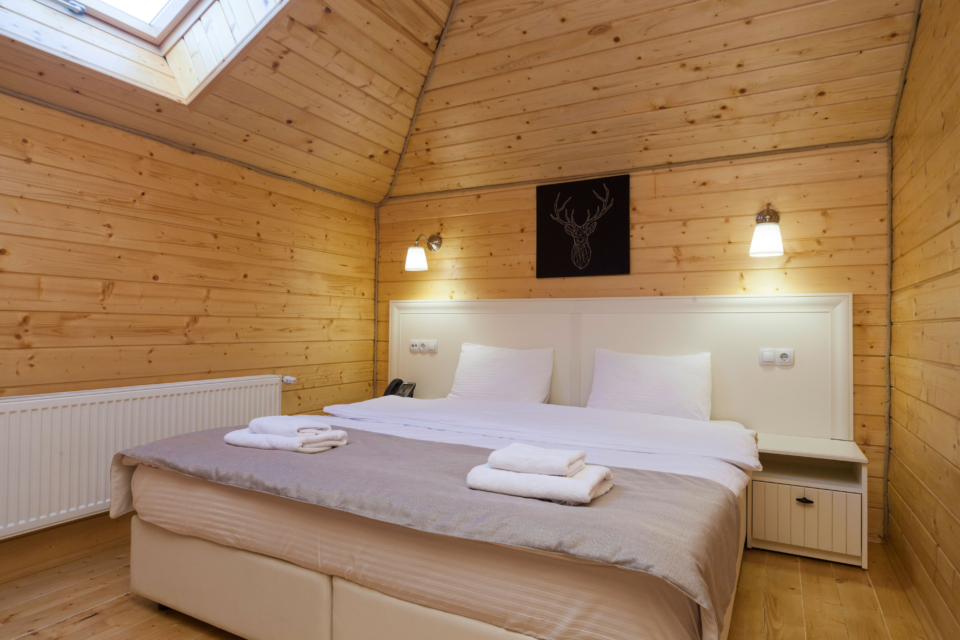
In the photo: Helios by Ribas hotel (Polyanytsia village, Ivano-Frankivsk region)
In case of blackout
A hotel’s energy and food security is often a deciding factor for guests to choose a hotel, as some people need electricity to work.
The hotels of our chain were prepared for the crisis in advance – this was foreseen at the design stage. The hotels were equipped with everything necessary to operate autonomously: we have generators that provide the power needed by the hotel, supplies of technical and drinking water, food, as well as alternative heating options – energy and gas. We also purchased additional Starlink kits.
In addition, in the case of a blackout, the Ribas rooms Lutsk hotel purchased thermoses, tablets, which are used as an alternative to a computer, for uninterrupted operation of the reception.
Operational hotel management with Ribas Hotels Group. More details at the link.
Subscribe to our blog so you don’t miss the main trends in the hospitality market!




